By: Diane (Swies) Drago
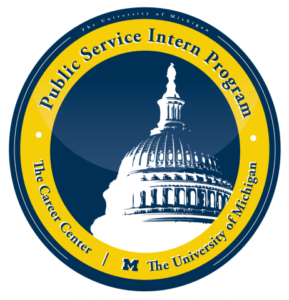 There are no coincidences in life, just opportunities which provide you with choices that can lead to life-altering decisions. While a chance meeting with a U.S. Senate staffer on the night of a primary election seemed inconsequential at the time, this encounter eventually led to an unexpected career path. A paid position on that campaign staff later became the pathway to being selected for that UM internship program two years after the chance meeting.
There are no coincidences in life, just opportunities which provide you with choices that can lead to life-altering decisions. While a chance meeting with a U.S. Senate staffer on the night of a primary election seemed inconsequential at the time, this encounter eventually led to an unexpected career path. A paid position on that campaign staff later became the pathway to being selected for that UM internship program two years after the chance meeting.
Fast forward two years to a normal walk through Michigan’s campus the spring before my December graduation. Applying for the internship was the result of noticing a poster on campus and thinking that Washington, DC would be a fun place to spend that last summer before graduation from Michigan’s School of Education.
I was selected for the internship by the Congressman from Ann Arbor (Marvin Esch) primarily because his administrative assistant (staff director) knew the person I worked for on the U.S. Senate campaign. That person (who I had not seen or heard from since that campaign) thankfully gave me a good recommendation.
The internship led to being hired by that Congressman after graduation from UM…which led to 12 years in DC, getting married and ultimately, laid the groundwork for staring my own conference and event management firm back in Michigan.
No coincidences, just a series of choices that offer opportunities on which I decide to act. And that internship ultimately became a pivotal part of my life, although I didn’t realize it in that moment.
– Diane Drago
Assigned to the only floor of the Georgetown University dorms that had no air conditioning. The heat—and finding ways to beat it—led to great friendships. The best of which was a girl who became a lifelong friend—after she asked to borrow the Cosmopolitan magazine I was reading. We spent the summer exploring DC and stayed friends.
All the interns were nervous about how their assignments would turn out. I was extremely fortunate to have been placed in Congressman Esch’s office. He and his staff were welcoming and inclusive. I learned both the mundane and fascinating facets of a Congressional office, which was very helpful once I was hired by that office after graduation from Michigan.
I was able to follow certain pieces of legislation by attending committee meetings and following the progress on the House floor in a few instances. I answered the phones, met and helped escort constituents on visits to the Capitol, read and helped respond to legislative mail—the job for which I was eventually hired.
I was thrilled when asked to write an article for the Congressional Record on behalf of the Congressman. I still have the original. Other interns and I were be able to attend receptions on behalf of the Congressman—free food and great contacts! Of course, we realized later that we were doing the staff have a favor, so they could go home to their families!
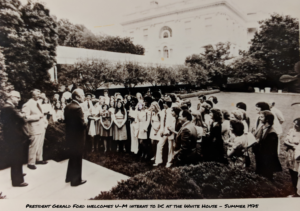
38th President of the United States, Gerald Ford meets with PSIP interns in the White House Rose Garden. President Ford graduated from Michigan in 1935 with a Bachelor in economics.
We were given many opportunities to attend special events and lectures. Because of Congressman Esch’s personal relationship with President Ford, he was able to arrange a private visit to the White House and Rose Garden for all the UM interns. That was not the case for non-UM interns we met.
One of the lectures we were to attend was particularly memorable—not because of the lecture, but what it ultimately led to. Interns were invited to attend a lecture by then Congresswoman Bella Abzug of New York, who was known to be quite a character. It was at the Library of Congress, which sounded interesting enough. When we went to the Library, we instead found police barricades because a movie scene was being shot there. I’m guessing the Congresswoman’s lecture had many fewer interns in attendance than planned. Instead, we watched Robert Redford and Dustin Hoffman shoot the scene from All the President’s Men where they run up the stairs of the Library to do research. Every time I see the movie and that scene, I think of one of the highlights of that summer!
In retrospect…
I was too young at the time to realize how those two chance occurrences—on a primary election night and a walk through campus—would help shape the decisions I would make about the course of my life.
– Diane Drago
The UM internship program was certainly pivotal in my life. The education, lasting friendships, professional contacts and opportunities it provided are priceless. Today, I continue to highly recommend it and similar programs to young people. Take advantage of the opportunities presented in life—you’ll never know where the decisions you make about those opportunities might lead unless you take a chance.
Celebrate the 50th year at the Alumni Reunion Reception in Washington, D.C.
Thursday, June 13, 2019
6:00 – 8:30pm
City View Room, George Washington University campus
Washington, D.C.
For additional information or questions, contact PSIP Supervisor Lynn Halton
Support future PSIP interns through the new PSIP ENDOWED SCHOLARSHIP
The University Career Center has created a new scholarship to fund U-M students’ ability to afford interning in DC through PSIP. Currently, our interns report the cost of working in DC for the summer is over $5,500. Please consider donating to this newly established scholarship to cover the cost of student housing, transportation and living expenses. You know personally that PSIP is a transformative experience that should be available to any Michigan student, regardless of socioeconomic status.
If you have any questions about this scholarship fund or giving to PSIP, please contact Kyle Nowels on the Student Life Development team.
You may also consider giving online at: www.giving.umich.edu/give/700531.
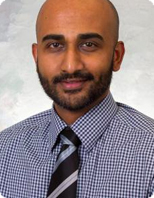
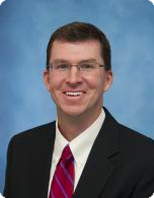
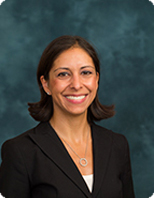
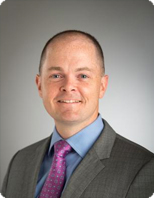

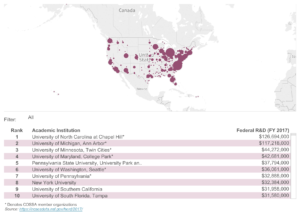
 There are no coincidences in life, just opportunities which provide you with choices that can lead to life-altering decisions. While a chance meeting with a U.S. Senate staffer on the night of a primary election seemed inconsequential at the time, this encounter eventually led to an unexpected career path. A paid position on that campaign staff later became the pathway to being selected for that
There are no coincidences in life, just opportunities which provide you with choices that can lead to life-altering decisions. While a chance meeting with a U.S. Senate staffer on the night of a primary election seemed inconsequential at the time, this encounter eventually led to an unexpected career path. A paid position on that campaign staff later became the pathway to being selected for that 
